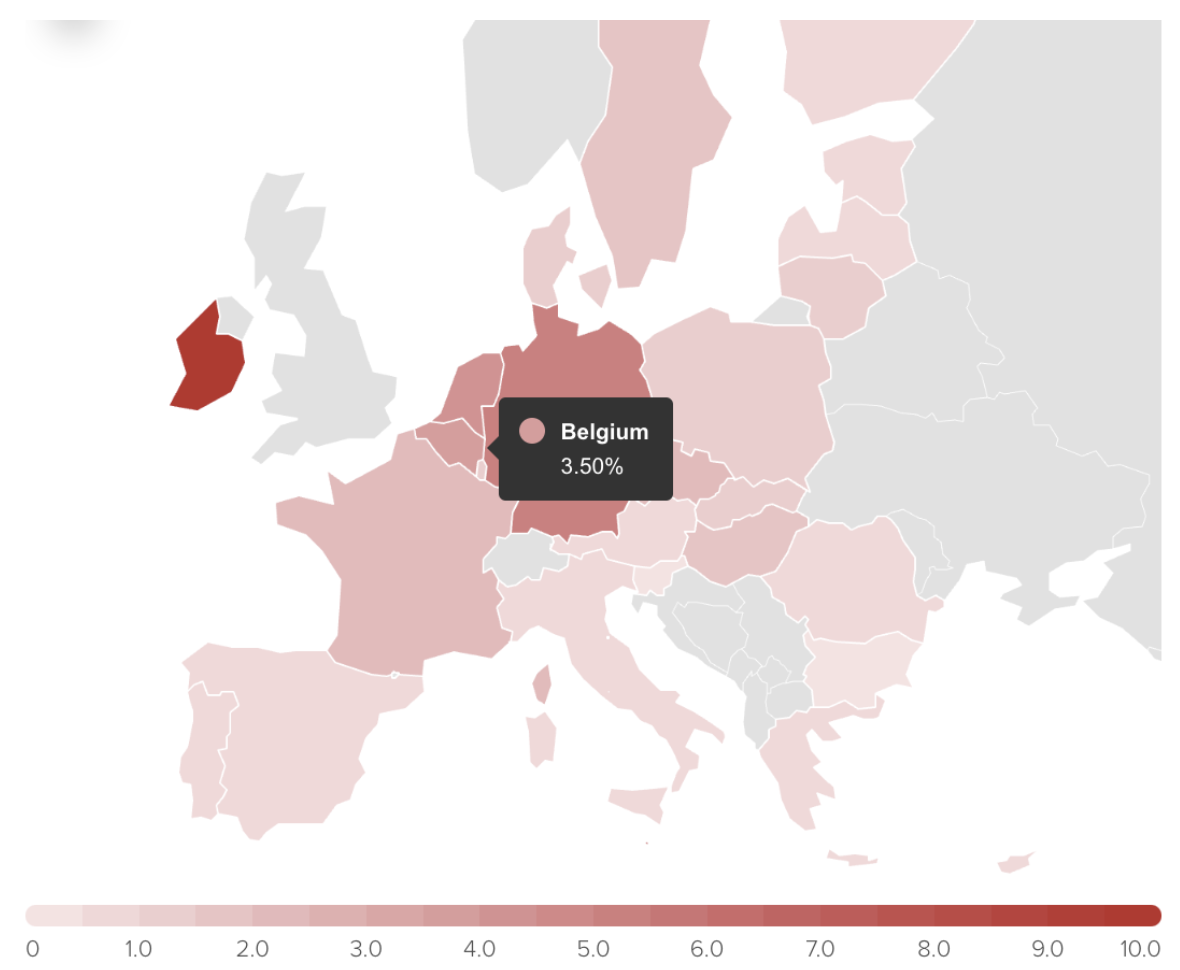Yes, in the fulfilment of Brexit aftermath, Belgium emerges as a fertile ground in European lands for interim management opportunities. Uniquely positioned to leverage its strategic advantages and robust logistics to drive growth in the European market.
Read more on Brexit below to discover more.
Introduction Brexit
This article, Brexit and Beyond: Are there Opportunities for Belgium post Brexit’s Aftermath, aims to explore the aftermath of Brexit and its wide-reaching effects on European markets, with a specific focus on Belgium. As the EU and the UK navigate their new relationship, significant changes in trade dynamics, regulatory frameworks, and market access have emerged. For Belgium, a country at the heart of the EU with its strategic position, robust logistics network, and a highly open economy, Brexit presents both challenges and opportunities. This analysis seeks to uncover how Belgian businesses, particularly those engaged in interim management, sales, marketing, and commercial due diligence, can navigate this new landscape. By identifying new interim opportunities, repositioning market strategies, and leveraging Belgium’s unique strengths, this article will outline how Belgium can turn Brexit-induced challenges into avenues for growth and innovation in a reconfigured Europe.
Background – Brexit aftermath
Belgium, nestled at the heart of Europe, has long been recognized for its vibrant economy and significant role within the European Union (EU). Before Brexit’s aftermath, Belgium’s economy was characterized by its strong integration into the EU’s single market, benefiting from seamless trade and investment flows across the bloc. As a founding member of the EU, Belgium has consistently championed European integration, leveraging its strategic location to become a key hub for international business, trade, diplomacy, and finance. The country’s economic landscape is diverse, with key industries including pharmaceuticals, chemicals, automotive, food processing, and, notably, a thriving logistics and transportation sector, underscored by the Port of Antwerp, one of the world’s largest and most crucial ports.
Belgium’s trade relationships extend beyond the EU, encompassing significant partnerships with major global economies. However, its trade business ties within the EU, particularly with neighboring countries like Germany, France, and the Netherlands, have been foundational to its economic prosperity. The advent of Brexit posed potential challenges and uncertainties for Belgium, as it did for the wider EU. With 3.5% of Belgium’s GDP being affected by Brexit (source: Politico). Economists and policymakers anticipated disruptions in trade flows, alterations in supply chains, and the need for new regulatory frameworks to manage the relationship with the UK, Belgium’s notable trading partner.

Source: Politico. The continental divide? Economic exposure to Brexit in regions and countries on both sides of the Channel.
For the interim management and commercial due diligence sector in Belgium, Brexit introduced both challenges and opportunities. As businesses grappled with the complexities of transitioning to a new economic relationship with the UK, the demand for skilled interim managers in sales, marketing, and commercial due diligence surged. These professionals became pivotal in navigating the uncertain waters, helping businesses adapt to new trading rules, identify alternative markets, and re-strategize operations to mitigate the impact of Brexit. The agility and expertise of interim management have thus been instrumental in steering Belgian businesses through the economic shifts, underscoring the sector’s crucial role in Belgium’s adaptive and resilient economic landscape.
This concise overview highlights Belgium’s economic resilience and adaptability, qualities that are further exemplified in the country’s strategic response to Brexit. Through expert interim management, Belgium continues to fortify its position within a reconfigured European economy, demonstrating its capacity to transform challenges into avenues for growth and innovation.
Impact of Brexit’s Aftermath on European Markets
Brexit’s impact reshapes the economic and operational terrain for businesses across Europe, necessitating strategic adaptations to navigate the new complexities.
Some of the core impacts of Brexit’s aftermath into the European Markets are:
- Market & Sales Trade Barriers and Logistics – The establishment of new trade barriers and logistical challenges post-Brexit has made the movement of goods more complex and costly for marketing purposes. Interim managers with a background in international sales trade and logistics are critical in navigating these barriers, optimizing supply chains, and minimizing disruptions to operations.
- Currency Fluctuations – The uncertainty surrounding Brexit has led to significant currency volatility, impacting cross-border transactions and business planning. Interim managers specializing in marketing, sales and business management are essential for developing strategies to hedge against currency risk and protect profitability.
- Investment Flows – Brexit has influenced investment flows, with potential shifts in investor confidence and capital allocation. Interim managers adept in commercial investment analysis and strategy can guide companies in adapting their investment portfolios to safeguard and capitalize on emerging opportunities.
- Specific Marketing & Sales Challenges Faced by Companies Operating in and out of the UK – Companies engaged in business with the UK face unique challenges, including regulatory compliance, market access, taxes, and maintaining competitive advantage. Interim managers in Belgium are instrumental in identifying and implementing effective solutions to these challenges, ensuring companies can operate efficiently in this new context.

Opportunities for Belgium
Brexit presents a complex landscape for businesses across Europe, yet it also unveils unique opportunities for Belgium, given its strategic position and robust economy. As businesses and markets adjust to the new realities post-Brexit, Belgium is well-placed to navigate these changes proactively, leveraging its strengths to capture new trade opportunities, adapt supply chains, and forge new trade agreements.
1.Identification of New Marketing, Sales & Business Opportunities
Brexit has redefined new marketing, sales and business dynamics within the EU, prompting Belgian businesses to explore new opportunities. With the UK’s departure, there’s a shift in the network, opening avenues for Belgium to increase its trade footprint not only within the EU but also with non-EU countries. Belgium’s export-oriented economy, renowned for its pharmaceuticals, machinery, equipment, and diamonds, stands to diversify its trade partners further, tapping into markets that were previously underexplored due to EU-UK dynamics.
2. Shifts in FMCG Supply Chains
The reconfiguration of supply chains is a significant fallout of Brexit, with businesses looking to minimize disruptions caused by new trade barriers. Belgium, with its world-class logistics and port facilities, notably the Port of Antwerp, can become an even more critical hub for European logistics. Companies are reevaluating their supply chains, and Belgium’s logistic capabilities offer them a reliable alternative for maintaining smooth operations across Europe and beyond.
3.Emerging Markets within the EU
The realignment of business relationships post-Brexit encourages Belgian businesses to strengthen their presence in emerging markets within the EU. Sectors like technology, green energy, and digital services are gaining traction. Belgium’s innovation-driven economy is well-positioned to lead in these sectors, fostering growth and establishing new partnerships within the union.
4.New Trade Agreements
Brexit necessitates the forging of new trade agreements, with Belgium poised to benefit from bilateral and multilateral negotiations. The country’s strategic location and strong political ties within the EU and globally facilitate its role as a key negotiator in establishing new trade pacts that can benefit its economy and set a precedent for EU trade policy post-Brexit.
5.Belgium’s Strategic Position
Belgium’s geographical and economic position in Europe, coupled with its advanced infrastructure, positions it as a gateway to Europe for many businesses. The efficiency of its ports and business networks offers seamless access to the European market, enhancing Belgium’s appeal as a base for multinational companies looking to navigate post-Brexit trade complexities.
6.Benefiting Sectors
Specific sectors in Belgium could see significant benefits from Brexit. The pharmaceutical sector, a cornerstone of the Belgian economy, could capitalize on new regulatory frameworks and expanded market access. Additionally, the technology sector, particularly in fintech and digital services, stands to gain from shifts in investment flows and the need for innovative solutions to post-Brexit challenges. While specific figures and statistics require detailed economic analyses, these sectors represent areas of potential growth and opportunity for Belgium in the post-Brexit era.
The Role of Interim Management and Commercial Due Diligence
In the evolving economic landscape following Brexit, the role of interim management and commercial due diligence has become increasingly pivotal for businesses aiming to navigate the uncertainties and seize new opportunities. This strategic approach is instrumental for Belgian companies adapting to the post-Brexit market conditions.
What is Interim Management and Its Role in Commercial Due Diligence?
Interim management involves temporary leadership by experienced managers to guide companies through periods of transition, crisis, or change. In the context of commercial due diligence, interim managers evaluate a company’s financial health, operational efficiency, marketing, sales, and market position to make informed decisions, ensuring the business remains competitive and adaptable.
Case Studies: The Impact of Interim Management
Several example cases to illustrate the impact of interim management in a post-Brexit scenario:
- A Belgian pharmaceutical company facing regulatory uncertainties benefits from an interim marketing or sales manager’s expertise to navigate new compliance requirements, avoiding costly disruptions and maintaining its competitive edge in the EU and UK markets.
- An interim sales or marketing management professional helps a Belgian logistics company reevaluate its supply chain network in light of Brexit-induced trade barriers, implementing more efficient routes and partnerships to ensure timely deliveries and cost savings.
Summary
Post-Brexit, Belgium stands as a key player in the interim management sector, adeptly maneuvering through market shifts with its strategic advantage and robust logistics. The nation’s proactive approach to seizing new business opportunities sets a benchmark in the European post-Brexit economy.
If you wish to discuss national or international collaborations. Please do not hesitate to give us a call or contact us via the form.
Written by Camila Pereira, Head of Marketing BrainTower
Would you like to discuss this further with us? Discuss some cases that are specifically relevant to you?
